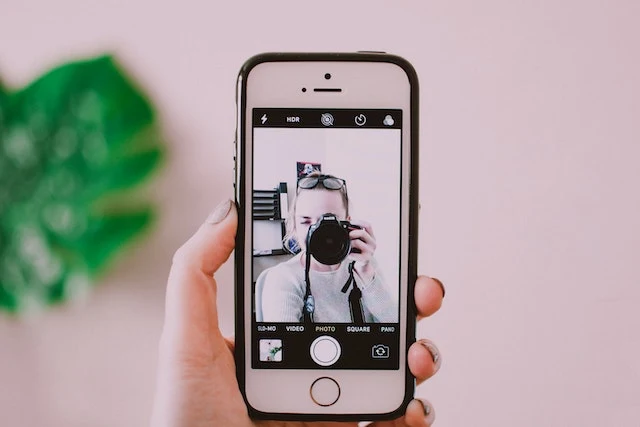The camera can distort your face depending on various factors such as the lens used, the angle at which the photo is taken, and the distance between the camera and your face.
For example, if a wide-angle lens is used, it can make your face appear wider and distorted at the edges. Similarly, if the camera is positioned too close to your face, it can exaggerate certain features and make your face appear larger.
However, modern smartphones and cameras have features like facial recognition and distortion correction, which can help to minimize the effects of distortion and produce more accurate representations of your face.
Overall, while the camera can potentially distort your face, it depends on several factors, and with proper camera techniques and settings, you can capture a more realistic image of yourself.
Why is my Face Uneven on Camera
There are several reasons why your face may appear uneven on camera:
- Lighting: Uneven lighting can create shadows on your face, which can make one side appear darker or more prominent than the other.
- Camera angle: The angle at which the photo or video is taken can also affect the symmetry of your face. If the camera is tilted, it can create an uneven perspective and make one side of your face appear larger or smaller than the other.
- Lens distortion: Depending on the type of lens used, the edges of the photo or video may appear distorted, making your face appear uneven.
- Facial asymmetry: It's also possible that your face is naturally asymmetrical, meaning one side is slightly different from the other.
Overall, it's common for faces to appear slightly different on camera due to these factors. However, if you are concerned about your facial symmetry, you may want to consult with a dermatologist or plastic surgeon to determine if any treatments can help address your concerns.
Do Mirrors Distort your Face
Mirrors can distort your face to some extent, depending on the type of mirror and how it is positioned. However, the distortion caused by mirrors is typically less noticeable than that caused by cameras.
Some mirrors, such as concave or convex mirrors, are designed to distort the reflection of objects to create a certain effect. If you are using this type of mirror, it can definitely make your face appear distorted and uneven.
However, if you are using a standard flat mirror, the distortion is usually minimal. The main difference between a mirror and a camera is that a mirror reflects light directly back to your eyes, while a camera captures an image through a lens. Therefore, the image you see in a mirror is usually a more accurate representation of your face than a photo or video captured by a camera.
Overall, while mirrors can potentially distort your face, the distortion is usually minor and not as noticeable as camera distortion.
How Much Does your Selfie Camera Distort
The amount of distortion caused by your selfie camera can vary depending on the specific camera and lens used. However, most smartphone cameras have wide-angle lenses that can cause some degree of distortion, especially when taking selfies up close.
Wide-angle lenses are designed to capture a broader view, but this can cause some stretching and widening of the image at the edges, which can make your facial features appear slightly distorted. The degree of distortion can also depend on the camera's field of view and the distance between the camera and your face.
In general, the distortion caused by selfie cameras is usually not severe enough to significantly alter the appearance of your face, but it can make certain features appear slightly larger or smaller than they actually are. Additionally, the distortion may be more noticeable in some cameras than in others.
Do Iphone Cameras Distort your Face
iPhone cameras, like most smartphone cameras, have wide-angle lenses that can cause some degree of distortion when taking selfies up close. This distortion can make your facial features appear slightly stretched or widened, which can make your face look slightly different than it does in person.
However, recent iPhone models also have features like facial recognition and distortion correction, which can help to minimize the effects of distortion and produce more accurate representations of your face.
Additionally, the degree of distortion can also depend on the camera's field of view, the distance between the camera and your face, and the angle at which the photo is taken. Taking selfies from too close or at an awkward angle can exaggerate certain features and make your face appear larger or smaller than it actually is.


Post a Comment